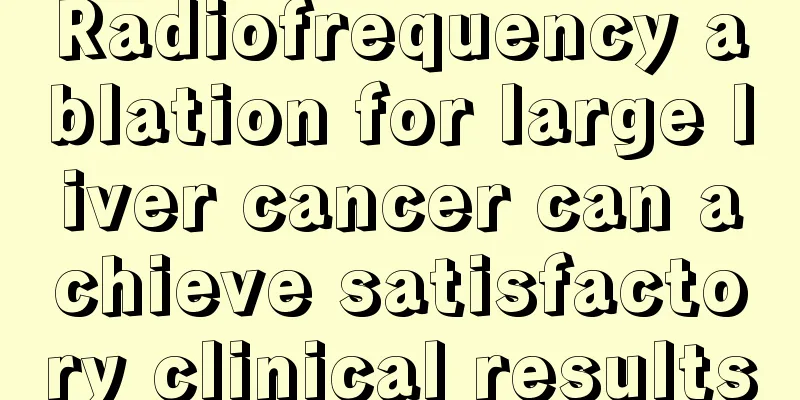Radiofrequency ablation for large liver cancer can achieve satisfactory clinical results

|
In the past five years, radiofrequency ablation technology has been widely used in the comprehensive treatment of liver cancer, and rich experience has been accumulated. With the significant improvement of radiofrequency ablation equipment and the deepening of people's understanding of liver cancer, some carefully selected patients with large liver cancer have achieved good clinical results through comprehensive treatment mainly based on radiofrequency ablation. Combined application of transarterial chemoembolization Rich arterial blood supply is the most important pathophysiological feature of liver cancer. These abundant arterial blood vessels can take away the heat in the ablation focus, thus affecting the efficiency and efficacy of radiofrequency ablation. This is especially true for radiofrequency treatment of large liver cancer. The application of transarterial interventional chemoembolization before radiofrequency ablation can effectively reduce the arterial blood supply in liver cancer and improve the efficiency and efficacy of radiofrequency ablation. Laparoscopic radiofrequency ablation Large liver cancer is often closely related to important structures such as the diaphragm, gallbladder, colon, stomach and duodenum. Therefore, it is difficult to use percutaneous puncture and is prone to complications such as damage to important structures. Laparoscopy can provide a clearer, more intuitive and comprehensive field of view, and the puncture angle is more flexible and applicable, which significantly improves safety. Repeated radiofrequency ablation Large liver cancers often require multiple radiofrequency ablations. Modern studies have shown that repeated radiofrequency ablation can enhance the body's anti-tumor immune function. During the first radiofrequency ablation, tumor cells and some normal liver cells degenerate and necrotize, and a large number of autoantigen components enter the blood, which can activate tumor-specific T lymphocyte responses. Repeated radiofrequency ablation in a short period of time causes a large number of autoantigen components to enter the blood again, and T lymphocytes proliferate in large numbers, which significantly enhances the body's anti-tumor immune function. Pain-free guarantee and breathing support Radiofrequency ablation treatment for large liver cancer can last more than 2 hours. General anesthesia and respiratory support can eliminate the patient's tension and pain, thereby eliminating the patient's tension. |
<<: Five preoperative examinations for esophageal cancer help determine the nature of the tumor
>>: Five commonly used imaging tests for pancreatic cancer screening
Recommend
Do I need to go to the hospital to have a hamartoma treated?
Do you need to go to the hospital to wash your ha...
What are the common symptoms of lung cancer? Check out the common symptoms of lung cancer
Lung cancer has become a common disease in today&...
Can honey be washed with hot water?
Many people like to drink honey water, not only b...
What are the methods to remove formaldehyde from a new car?
Buying a new car always makes people excited, but...
Is cadmium harmful to human body?
Cadmium is an element like zinc that exists in na...
Is premature graying of hair hereditary?
We must have often seen the disease of premature ...
Bladder leakage in late stage of cervical cancer
Bladder leakage in late-stage cervical cancer is ...
What lung cancer treatment is most helpful
Lung cancer has become a disease with a relativel...
The benefits of roller skating
Roller skating is a sport that young people prefe...
What is the cause of buttock neuralgia
Many people often feel nerve pain in the buttocks...
The main characteristics of visceral pain are, do you know these two characteristics?
Everyone will get various diseases in life, and g...
So what should people with colon cancer avoid eating? What are the precautions?
In recent years, colon cancer has gradually risen...
What is the first choice for gastric cancer treatment?
Early lesions of gastric cancer are relatively li...
There are 3 pros and 1 cons to cooking with a pressure cooker
Pressure cookers are easy to use, save time and e...
Will nasopharyngeal carcinoma recur after radiotherapy?
Will nasopharyngeal carcinoma recur after radioth...









